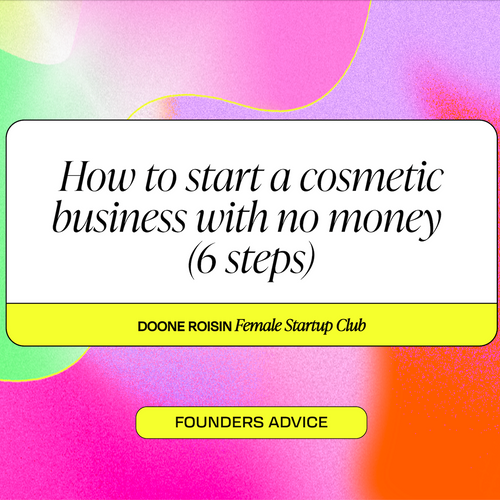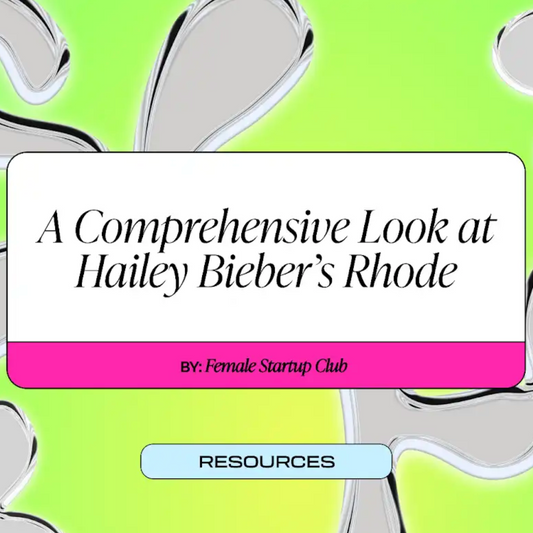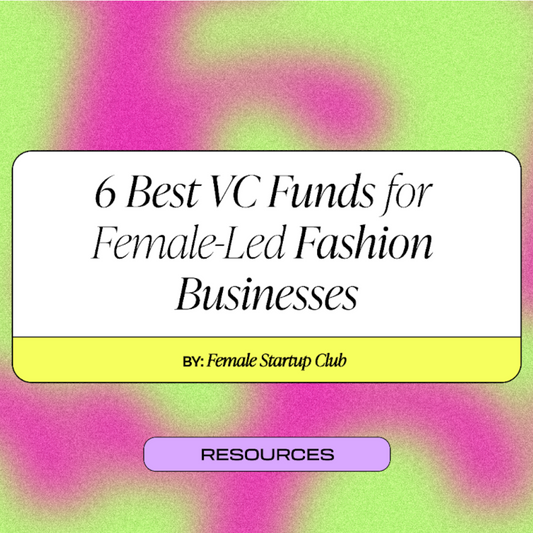Joining me on today’s episode is Kara Goldin, Founder and CEO of Hint, Inc.
This is an incredibly special milestone for me as it’s our 100th episode! I started Female Startup Club to help other women in progress, like myself, learn and be inspired by women who are building badass businesses and changing the world and I’m so thrilled to be speaking with an entrepreneur who has built something really incredible over the last 15 years.
Born in San Francisco, hint, inc. was founded in 2005 by entrepreneur Kara Goldin. It started as a healthy lifestyle brand best known for its flagship product, hint water- a delicious, unsweetened flavored water. Kara started the company with a simple idea: to make water that tastes great. To do away with all the sugar and diet sweeteners. And to give her family and friends something better that they would love. Today, hint is going beyond water to give people better, healthier experiences that they can truly enjoy and share.
We chat through her mission for building this business, what propelled her forward in realising that she would need to create and educate in an entirely new category and her advice for entrepreneurs with a big idea.

The story of this health-focused beverage brand begins with a simple mission: to help people enjoy drinking water and promote healthier lifestyles. With a range that includes fruit-infused, carbonated, and even caffeinated options—all free from sweeteners—this brand is committed to making a positive impact on consumers’ health.
Flashback to 15 years ago, when the brand first hit the shelves of Whole Foods. At the time, the founder was receiving heartfelt messages from customers who shared how the product was helping them manage their type 2 diabetes. It was a surprising revelation—type 2 diabetes affected only 2% of the population back then. Fast forward to today, and that number has ballooned to an alarming 40-45%. This staggering increase in prevalence has turned type 2 diabetes into an epidemic, largely influenced by diet and other factors that many people remain unaware of.
This is where the founder's mission shines: to create delicious products that prioritize health by steering clear of artificial sweeteners and diet additives. It’s a noble goal, and the impact on consumers is clear: they are grateful for the brand's role in making water more enjoyable.
But how did this brand get off the ground, especially in those early days? The founder recalls a pivotal moment right before giving birth to her fourth child. With the product launch delayed and space in the garage at a premium, she had a wild idea. Instead of a leisurely brunch or walk, she asked her husband to take her to Whole Foods to see if they could get their product on the shelves before heading to the hospital.
Picture this: waddling into the store, she spots the guy she'd previously been in touch with about the product. With her husband hauling boxes in the background, she strikes up a conversation with him, explaining the difference between planned and emergency C-sections. As her husband navigates the produce aisle, the Whole Foods employee expresses gratitude for her explanation—talk about multitasking!
Then came the moment of truth. After leaving the hospital with her new baby, the founder learned that their product had flown off the shelves overnight. The excitement was palpable, but reality quickly set in. They needed more product, and the founder realized that the journey was just beginning. Despite her success, doubts crept in. Family and friends were well-meaning but often questioned her decision to step into the world of entrepreneurship.
As a former tech executive at AOL, she found herself in a completely different environment, dealing with challenges like shelf-life issues and distribution logistics. Despite feeling overwhelmed, she remained determined. She realized that asking for help was essential. This led her to an eye-opening meeting with a Coca-Cola executive, who bluntly told her that “Americans love sweet” and questioned her unsweetened approach.
Initially taken aback by his condescending tone, the founder had an epiphany. She recognized that despite the discouraging feedback, she needed to stay true to her mission. After all, the heart of her brand was about health, not sugar.
This revelation sparked a fire within her. Instead of letting the executive’s comments derail her, she chose to push forward, drawing inspiration from her interactions with real customers who valued her product. It was then that she understood the importance of listening to her audience and remaining curious about their needs.
This journey inspired her to write a book titled Undaunted: Overcoming Doubts and Doubters. The book serves as a guide for fellow entrepreneurs and anyone curious about pursuing their passions. It highlights the power of resilience and curiosity in the face of doubt.
As the founder puts it, the key to success lies in recognizing what truly matters. With every hurdle, she learned that staying true to her vision and listening to her customers would ultimately pave the way for growth. And as her brand continues to thrive, she hopes to inspire others to embrace their journeys, overcoming their own doubts along the way.



